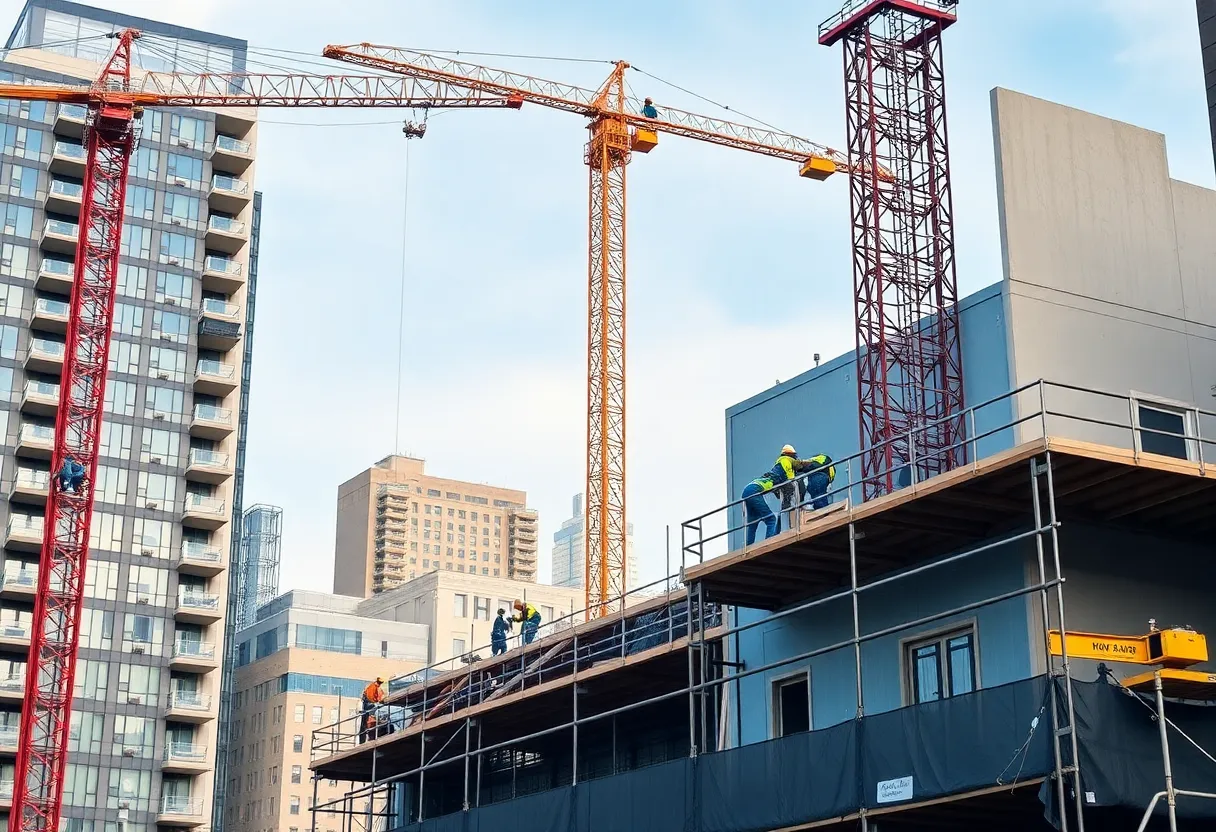News Summary
New York City’s Safe Hotels Act introduces stringent regulations aimed at enhancing safety and protecting workers in the hotel industry. With permits required for compliance and various operational mandates, hotel owners face increased costs and challenges. The act compels hotels to reassess their staffing models and operational strategies, raising concerns about financial pressures, particularly for smaller properties. As similar regulations are considered in other urban areas, the hospitality sector may undergo significant changes in response to these new legislative requirements.
New York City’s recently enacted Safe Hotels Act is poised to create significant operational challenges for the hotel industry, following its implementation in spring 2023. This new legislation, aimed at enhancing public safety and protecting workers, mandates several stringent regulations for hotel operators across the city.
The Safe Hotels Act requires hotel owners, leaseholders, and managers to acquire a two-year permit from the Department of Consumer and Worker Protection, with a corresponding fee of $350. This permit will ensure compliance with various standards that include:
- Mandatory daily housekeeping services unless a guest opts out.
- Installation of panic buttons for enhanced guest safety.
- Training protocols focused on preventing human trafficking.
- Continuous front-desk or security personnel coverage.
For properties with 100 or more rooms, the law necessitates that housekeeping and front-desk staff be directly hired by the hotel, eliminating reliance on subcontracted workers for these crucial roles. These changes have raised concerns among hotel operators regarding escalated operational costs and diminished flexibility.
Impact assessments show that smaller hotels and non-union properties, which often depend on outsourced labor, might experience heightened financial pressures due to the law’s requirements. Many hotel operators are recalibrating their strategies, with some opting to halt upgrades or freeze hiring as they evaluate the financial and regulatory impacts of the new legislation.
Financial institutions are closely examining hotel portfolios for any compliance-related risks, particularly regarding how these may influence underwriting and refinancing processes. Switching to an internal staffing model is expected to inflate annual operational expenses by hundreds of thousands of dollars, depending on the hotel’s size and service provisions. The requirements outlined in the Safe Hotels Act are anticipated to significantly diminish profit margins for various properties.
Furthermore, certain terms within the legislation, such as “adequate staffing”, “safe conditions”, and “cleanliness”, lack clear definitions. This ambiguity has fostered uncertainty among hotel operators regarding how to navigate compliance effectively.
As compliance risks emerge, credit officers at financial institutions have begun marking Safe Hotels Act adherence as a liability in loan underwriting and renewal procedures. Hotels that are governed by collective bargaining agreements and meet or exceed the act’s stipulations may benefit from partial regulatory relief, emphasizing union representation as a possible compliance strategy. Small hotel operators are increasingly engaging in discussions with unions in pursuit of potential partnership or representation arrangements.
The regulations instantiated by the Safe Hotels Act may incite significant shifts within the hospitality sector and complicate labor relations going forward. There are existing concerns that these regulations could force existing hotels to change their usage or inhibit the development of new hotel properties.
While currently enforced in New York City, similar iterations of the Safe Hotels Act are being considered in urban areas such as Los Angeles, San Diego, and parts of Chicago. Consequently, hotel executives throughout the nation are actively conducting audits of vendor agreements, simulating staffing cost scenarios, and revisiting financing documents in anticipation of comparable regulations.
Property owners are strategically formulating contingency plans and restructuring vendor partnerships to prepare for the possible future implementation of regulations akin to the Safe Hotels Act. This act represents a pivotal moment in urban hospitality regulation, drawing attention to the necessity for a balance between ensuring worker protection and maintaining operational feasibility within the hotel industry.
Deeper Dive: News & Info About This Topic
HERE Resources
New York City to Close Row NYC Hotel for Migrants
Mass Shooting in Midtown Manhattan Claims Four Lives
Hawkins Way Capital Acquires World’s Tallest Holiday Inn
Wealthy New Yorkers Move to South Florida Amid Rising Concerns
New Business Owner’s Policy for Casual Dining Restaurants
Nashville’s Hotel Market Faces Turbulence with Embassy Suites Sale
Additional Resources
- The New York Times
- Wikipedia: Safe Hotels Act
- Hotel News Resource
- Google Search: Safe Hotels Act regulations
- Hospitality Net
- Encyclopedia Britannica: Hotel
Author: STAFF HERE NEW YORK WRITER
The NEW YORK STAFF WRITER represents the experienced team at HERENewYork.com, your go-to source for actionable local news and information in New York, the five boroughs, and beyond. Specializing in "news you can use," we cover essential topics like product reviews for personal and business needs, local business directories, politics, real estate trends, neighborhood insights, and state news affecting the area—with deep expertise drawn from years of dedicated reporting and strong community input, including local press releases and business updates. We deliver top reporting on high-value events such as New York Fashion Week, Macy's Thanksgiving Day Parade, and Tribeca Film Festival. Our coverage extends to key organizations like the Greater New York Chamber of Commerce and United Way of New York, plus leading businesses in finance and media that power the local economy such as JPMorgan Chase, Goldman Sachs, and Bloomberg. As part of the broader HERE network, including HEREBuffalo.com, we provide comprehensive, credible insights into New York's dynamic landscape.





